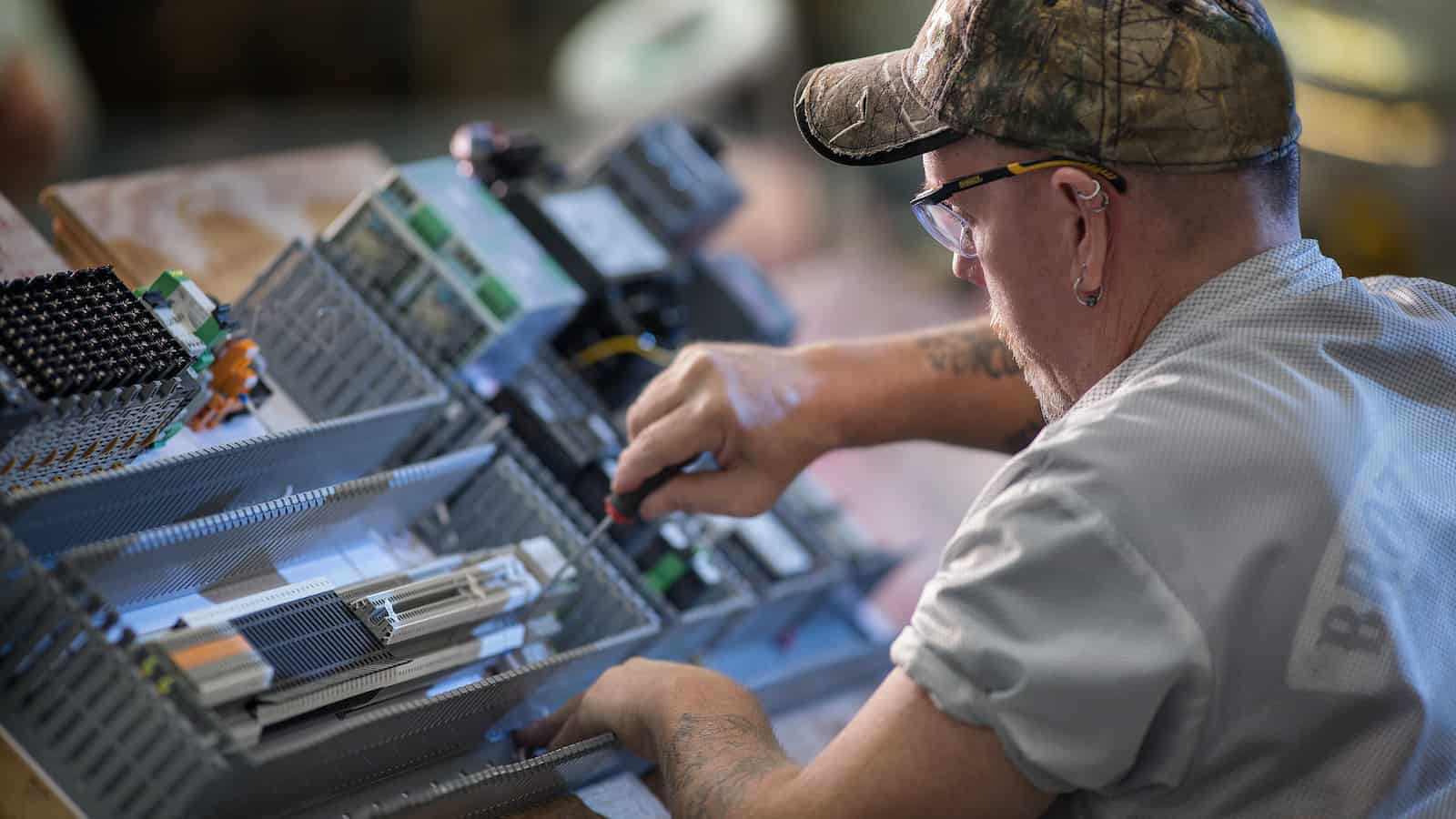

With nearly 2 million electric vehicles in the United States, OEMs everywhere are looking for a superior Tesla charging station manufacturer.
So where do you start?
If you’re like most OEMs, you’ll probably begin by searching Thomasnet. Here, you will find 5,308 contract manufacturing (CM) suppliers. We would be remiss if we did not add within this deluge of options, there is one noteworthy vendor to consider.
Beverly Sills once said, “There are no shortcuts to any place worth going.”
Truer words have never been spoken. Shortcuts are diametrically opposed to quality. That said, is meticulously combing through 5,308 profiles on Thomasnet the only option?
Thankfully, no.
You can parse this list by focusing on two issues; certifications and culture.
Let’s start with culture.
Let’s get one myth about culture out of the way up-front; it is neither intangible nor difficult to measure. If you want to know where a supplier falls on the quality spectrum, ask if their culture is written down.
You cannot claim a relentless commitment to quality if leadership hasn’t taken the time to write down…
Leaders who cannot prioritize culture will not prioritize quality.
To select a Tesla charging station manufacturer, start with culture. If culture isn’t aligned with standards, policies and procedures don’t matter.
If your car breaks down, you need a mechanic. Which mechanic you choose depends on what’s broken. You don’t go to the tire guy to rebuild the transmission. He doesn’t have the right certifications.
Likewise, you don’t bring low-volume, high-mix problems to high-volume, low-mix manufacturers. These are two distinct and mutually exclusive business models. The former offer turnkey solutions at scale. The latter offer niche turnkey solutions in highly-regulated and/or supremely specialized industries.
Much like the mechanics above, your specialities dictate your certifications.
Here are some of the certifications you can expect to see in the hunt for a Tesla charging station manufacturer.
You can spot a good restaurant by the lines outside. You can spot a good certification by the corporations that maintain them. General Electric Aircraft Engines, Pratt & Whitney, and Lockheed-Martin maintain ISO 9001 certifications.
Standards within the ISO 9001 family include:
ISO 9000 is divided into sector-specific applications. ISO 13485:2016 for medical devices, ISO/TS 22163:2017 for railway applications, and so on.
ITAR governs defense and military technologies. It prohibits the sale or transfer of technology to China, Cuba, Iran, North Korea, Sudan and Syria. Violators pay heavy fines. As much as $100 million!
Needless to say, you don’t want to violate ITAR.
ITAR quality management is a bellwether for exacting quality standards, this is not a litmus test. You can be a proficient Tesla charging station manufacturer without an ITAR certification.
1957 will always be known for two things. The end of I Love Lucy and the birth of the Institute of Printed Circuit. After changing to the Institute for Interconnecting and Packaging Electronic Circuits, the organization settled on IPC in 1999.
IPC often partners with other trade associations in joint certifications.
IPC/WHMA-A-620, brings together IPC and the Wiring Harness Manufacturer’s Association (WHMA). This standard applies to cable, wire, and harness assemblies. You learn workmanship standards, customer satisfaction, and ISO compliance.
Unlike ITAR, it’s almost impossible to be a Tesla charging station manufacturer without IPC/WHMA-A-620. Which is why Cypress Technologies proudly maintains this certification.
Did you know the first issue of Billboard Magazine was published November 1, 1894? Perhaps William Henry Merrill picked up a copy on his way to his office at Underwriters Laboratories. That’s right, UL’s celebrated industry standards stretch back over 125 years.
After years of testing, UL circulated its “Tin Clad Fire Doors” standard in 1903. The company now has over 12,000 employees serving customers in 125 countries.
IPC, ISO, and ITAR apply to particular industries and market segments. UL certifications apply to particular products. These certifications fall into four categories.
UL Certified: Not legally required, almost universally required by retailers.
UL Listed: Ensures consumer products are safe before coming to market. This requires more testing than UL Recognized.
UL Recognized: Ensures power supplies, circuit boards, and other high-voltage machinery is efficient and safe. This is easier to achieve than UL Listed.
UL Performance Verified: Distinction stating UL has tested and measured products samples against an industry standard.
Cypress Technologies is partial to UL 508, the Standard for Safety For Industrial Control Equipment. It covers industrial control devices rated 1500 volts or less. These devices start, stop, regulate, control, or protect electric motors.
Contract manufacturers that maintain UL 508 will demonstrate mastery of temperature tests, over & under voltage testing, and much more. If your product contains overload relays, switches, or resistors, UL 508 is the answer.
Standards matter, but they are not guarantees. Be smart and do your due-diligence. Verify certifications, tour the factory, and don’t sign on the dotted line without a solid cultural fit.
If you could only keep one of these certifications, which would it be and why? Leave your thoughts in the comments!
Our People First Company Culture Fuels Success When you walk into Cypress Technologies, you will…
The choices electronics manufacturers make when sourcing materials go far beyond cost and efficiency. Ethical…
The promise of new tariffs under the incoming administration creates challenges for companies reliant on…
The manufacturing industry is transforming as businesses increasingly focus on sustainability. Instead of sticking to…
In electronic manufacturing, quality is more than a feature—it’s the backbone of every successful product…
Reducing waste in manufacturing is not just a strategic choice; it’s an essential practice for…
This website uses cookies.